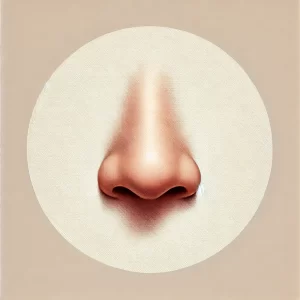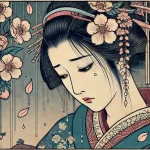怪獣の花唄 [Kaiju no Hanauta]
Vaundy [Vaundy]
Words & Music : Vaundy [Vaundy]
“Kaijū no Hanauta” is a song from the first album by singer-songwriter Vaundy, released in 2020.
His name “Vaundy” and the album title “strobo” sound somewhat English, which he says reflects the pride of Japanese artists. I can’t help but think, if that’s the case, why not choose a more Japanese-sounding name? Many artists these days, like Ayase or Syudou, write their names in the alphabet, reflecting the current trend. and I might be old-fashioned to think this way. Perhaps in the near future, using last names might seem uncool.
思い出すのは君の歌
omoidasu no wa kimi no uta
会話よりも鮮明だ
kaiwa yori mo senmei da
どこに行ってしまったの
doko ni itte shimatta no
いつも探すんだよ
itsumo sagasu n da yo
- 思い出す(おもいだす) [omoidasu] : recall
- 君(きみ) [kimi] : you
- 歌・唄(うた) [uta] : song
- 会話(かいわ) [kaiwa] : conversation
- 鮮明な(せんめいな) [senmei na] : vivid
- どこ(どこ) [doko] : where
- 行く(いく) [iku] : go
- いつも(いつも) [itsumo] : always
- 探す(さがす) [sagasu] : search
(translation) “What I recall is your song,
more vivid than conversations.
Where did you go?
I always search for you.”
In English, “remember” can encompass both “recall” and “keep in memory,” but in Japanese, they are distinct. “思い出す / omoidasu” conveys a feeling of memories welling up.
思い出すのは君の歌
omoidasu no wa kimi no uta
歌い笑う顔が鮮明だ
utai warau kao ga senmei da
君に似合うんだよ
kimi ni niau n da yo
ずっと見ていたいよ
zutto mite itai yo
- 歌う(うたう) [utau] : sing
- 笑う(わらう) [warau] : laugh
- 顔(かお) [kao] : face
- 似合う(にあう) [niau] : suit
- ずっと(ずっと) [zutto] : always
- 見る(みる) [miru] : look
(translation) “What I recall is your song,
and your laughing face is vivid.
It suits you,
and I always want to watch you.”
でも最後に見たいのは
demo saigo ni mitai no wa
きっともう君の夢の中
kitto mō kimi no yume no naka
もう一度また聞かせてくれよ
mō ichido mata kikasete kure yo
聞きたいんだもっと
kikitai n da motto
- 最後(さいご) [saigo] : last
- きっと [kitto] : surely
- 夢(ゆめ) [yume] : dream
- もう一度(もういちど) [mō ichido] : once more
- 聞く(きく) [kiku] : hear, listen
- もっと [motto] : more
(translation) “But what I want to see last is
surely in your dreams.
Let me hear it once more.
I want to hear it more.”
“聞く / kiku” can mean both listen and hear, and it also has the meaning of ask. Let’s briefly study some kanji.
聞
The part in the middle of this kanji is the ear.
“耳” (みみ) [mimi] : ear
It’s a pictograph representing the shape of an ear.

騒げ怪獣の歌
sawage kaijū no uta
まだ消えない
mada kienai
夢の歌唱えて
yume no uta tonaete
- 騒ぐ(さわぐ) [sawagu] : make noise
- 怪獣(かいじゅう) [kaijū] : monster
- まだ [mada] : still
- 消える(きえる) [kieru] : disappear
- 唱える(となえる)[tonaeru] : chant
(translation) “Make noise, monster song. I
t still hasn’t disappeared.
Sing the song of dreams.”
Let’s talk about “怪獣 / kaijū” (=monsters). The first thing that comes to mind for Japanese people when they hear “kaijū” is not Pokémon or Monsters, Inc., but Godzilla wiki.

In Japanese movies, there’s a genre called monster movies, usually featuring gigantic monsters like King Kong appearing in the human world, causing destruction and chaos. Besides Godzilla, there’s Gamera wiki, and the enemies of the once-popular super hero Urutoraman wiki (Ultraman) are also “kaijū.” These were beloved films and TV shows for children.
Now, as for what “kaijū” in this song refers to, I can’t provide a clear explanation. It might be a metaphor for something. Please think about it yourselves.
君がいつも歌う怪獣の歌
kimi ga itsumo utau kaijū no uta
まだ消えない
mada kienai
口ずさんでしまうよ
kuchizusande shimau yo
- いつも [itsumo] : always
- 口ずさむ(くちずさむ) [kuchizusamu] : hum
(translation) “The monster song you always sing,
it still hasn’t disappeared.
I find myself humming it.”
There are times when a melody lingers in your head, and you find yourself humming it, right?
思い出すのは
omoidasu no wa
君がいた
kimi ga ita
ギター持ってる
gitā motteru
君がいた
kimi ga ita
忘れられないんだよ
wasurerarenai n da yo
だから僕が歌うよ
dakara boku ga utau yo
- いる(いる) [iru] : be, exist
- ギター(ぎたー) [gitā] : guitar
- 持つ(もつ) [motsu] : hold
- 僕(ぼく) [boku] : I
(translation) “I remember.
You were there,
holding a guitar.
I can’t forget it,
so I’ll sing.”
でも最後に見たいのは
demo saigo ni mitai no wa
きっともう君の夢の中
kitto mō kimi no yume no naka
もう一度
mō ichido
また聞かせてくれよ
mata kikasete kure yo
聞きたいんだもっと
kikitai n da motto
騒げ怪獣の歌
sawage kaijū no uta
まだ消えない
mada kienai
夢の歌唱えて
yume no uta tonaete
君がいつも
kimi ga itsumo
歌う怪獣の歌
utau kaijū no uta
まだ消えない
mada kienai
口ずさんでしまうよ
kuchizusande shimau yo
落ちてく過去は鮮明で
ochiteku kako wa senmei de
見せたい未来は繊細で
misetai mirai wa sensai de
すぎてく日々には鈍感な君へ
sugiteku hibi ni wa donkan na kimi e
- 落ちる(おちる)[ochiru] : fall
- 過去(かこ) [kako] : past
- 見せる(みせる)[miseru] : show
- 未来(みらい) [mirai] : future
- 繊細(せんさい)[sensai] : delicate
- 過ぎる(すぎる)[sugiru] : too much
- 日々(ひび)[hibi] : days
- 鈍感(どんかん)[donkan] : insensitive
(translation) “The falling past is vivid,
the future I want to show is delicate,
to you, indifferent to the passing days.”
ねぇ、もっと
nee, motto
騒げ怪獣の歌
sawage kaijū no uta
まだ消えない
mada kienai
夢の歌唱えて
yume no uta tonaete
君がいつも
kimi ga itsumo
歌う怪獣の歌
utau kaijū no uta
まだ消えない
mada kienai
口ずさんでしまうよ
kuchizusande shimau yo
ねぇ、僕ら
nee, bokura
眠れない夜に手を伸ばして
nemurenai yoru ni te o nobashite
眠らない夜をまた伸ばして
nemuranai yoru o mata nobashite
眠くないまだね
nemukunai mada ne
そんな日々でいたいのにな
sonna hibi de itai no ni na
懲りずに
korizu ni
眠れない夜に手を伸ばして
nemurenai yoru ni te o nobashite
眠らない夜をまた伸ばして
nemuranai yoru o mata nobashite
眠くないまだね
nemukunai mada ne
- 眠る(ねむる) [nemuru] : sleep
- 夜(よる) [yoru] : night
- 手(て)[te] : hand
- 伸ばす(のばす)[nobasu] : extend
- 眠い(ねむい) [nemui] : sleepy
- 懲りる(こりる)[koriru] : learn a lesson
(translation) “Hey, we
reach out during sleepless nights,
prolonging the sleepless nights again.
I’m not sleepy yet,
wishing for days like this,
unfazed,
reaching out during sleepless nights,
prolonging the sleepless nights again,
still not sleepy.”
そんな夜に歌う
sonna yoru ni utau
怪獣の歌
kaijū no uta
(translation) “Singing on such nights,
the monster’s song.”
The title of this song is “怪獣の花唄 / Kaiju no Hanauta” The kanji for “鼻歌 / hanauta” means humming.
花(はな) [hana] : flower
鼻(はな) [hana] : nose

Vaundy said that he deliberately distinguishes between “怪獣の花唄 / Kaijū no Hanauta” and “怪獣の歌 / Kaijū no Uta” in the lyrics.
What does “kaijū” mean, and what is the difference between “hanauta” and “uta”? Please consider these questions, and if you have any insights, share them in the comments.
Thanks for reading! Feel free to comment if you have any feedback or questions.
Follow me on X.



